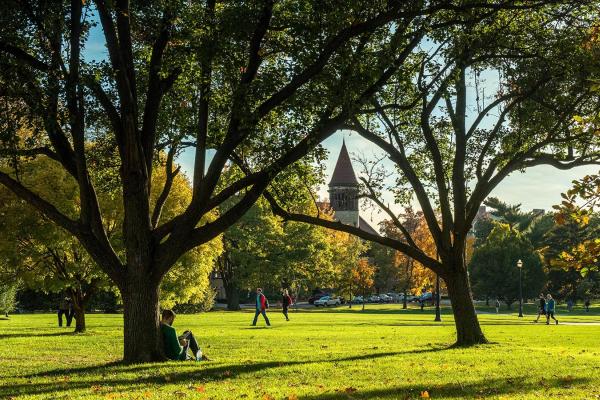New Working Group Fosters Tech Collaboration at SES

The School of Earth Sciences has launched an exciting new initiative to strengthen our community's technical capabilities and foster collaboration across the department. The "SES Tech Meetup," held weekly on Thursday afternoons, serves as a dedicated space where faculty, staff, and students can share knowledge, explore best practices, and receive hands-on technical support.
Structured as "Office Hours for Tech," these sessions combine focused presentations with open consultation time, creating an environment that encourages both structured learning and organic problem-solving. The meetup covers a wide range of essential tools, from Microsoft 365 applications to advanced research computing resources.
Recent sessions have showcased the diverse expertise within our community. Graduate student Dane Bryant introduced participants to Ilastik, a powerful machine learning-based software that simplifies the process of segmenting, classifying, tracking, and counting experimental data. This tool has particular relevance for researchers working with cellular and other complex datasets.
Max Koontz, Research Consultant for the College of Arts and Sciences Unity Cluster, has been instrumental in helping our community leverage high-performance computing resources. His regular presence at these meetings ensures that SES researchers have direct access to expert guidance for their computationally intensive projects.
Lecturer Casey Saup has shared valuable insights on optimizing workflows through Microsoft Teams and other M365 tools, demonstrating practical strategies to reduce cognitive load and enhance productivity in both research and teaching contexts.
The SES Tech Meetup exemplifies our department's commitment to fostering a collaborative environment where technical knowledge flows freely across all levels of our academic community. Faculty, staff, and students interested in participating are encouraged to attend our Thursday afternoon sessions, where they can both learn from and contribute to this growing knowledge base.
Contributed by Casey Saup and Brent Curtiss
